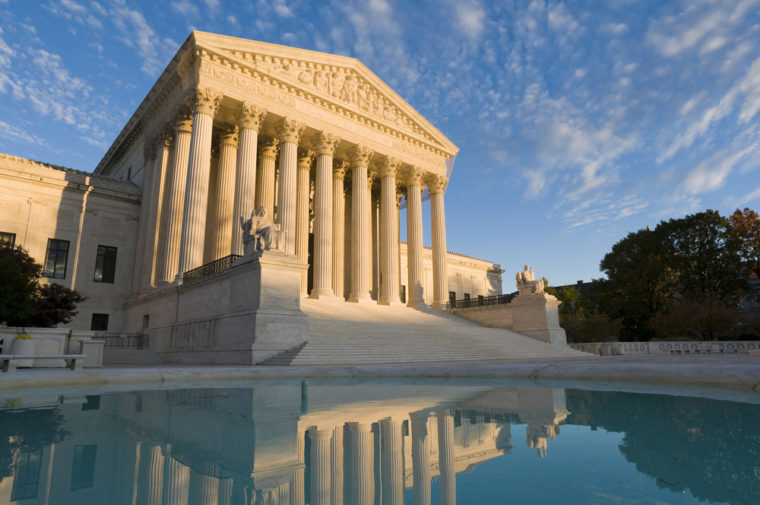The U.S. Supreme Court on June 11 upheld Ohio’s efforts to purge its voter rolls — a move that spreads voting discrimination across America, argued a constitutional law expert at Washington University in St. Louis.
“The most disturbing, destructive trend in contemporary American politics has been conservatives’ multi-pronged effort to disenfranchise voters they don’t like. The Supreme Court has consistently enabled that effort,” said Greg Magarian, professor of law and expert on freedoms of speech and press. He is author of the recent book “Managed Speech: The Roberts Court’s First Amendment.”

“This decision struck another blow against democracy and voting rights,” Magarian said.
The court ruled that a state may remove people from the voting rolls if they fail to vote in a few elections and fail to respond to a notice from state election officials.
Below, Magarian shared his thoughts on the court’s decision.
“Ohio’s Republican government purges voters from the rolls if they don’t vote in a single national election cycle. This scheme has the obvious intent and clear effect of denying the vote to thousands of lower-income voters and voters of color — groups who turn out to vote less often than wealthy and white voters but who skew strongly Democratic when they do vote.
“A federal law (the National Voter Registration Act) flatly bars states from removing voters from the rolls simply because they miss an election. However, that law leaves states some latitude to maintain ‘accurate’ rolls based on voters who have moved. Ohio cynically exploits that latitude by sending response cards to voters who missed elections and then erasing any voters who didn’t return the cards.
“The Supreme Court’s right-wing majority endorsed Ohio’s flimsy pretense of obedience to federal law. Chief Justice Roberts and Justices Kennedy, Thomas, Alito and Gorsuch parroted Ohio’s argument that the response card feint satisfies a federal law clearly aimed at blocking just this sort of voter-purging scheme. All four of the court’s Democratic appointees dissented.
“The court’s endorsement of voter purging follows its earlier decisions that permit discriminatory voter identification requirements, shrug off partisan gerrymandering of electoral districts and let big money dominate elections. The issue in today’s case was statutory, not constitutional, and that fact leaves some theoretical hope for a future constitutional challenge to Ohio’s voter purging. The court’s conservatives, however, seem committed to rubber-stamping whatever electoral cleansing strategies the Republican Party chooses.
“The Supreme Court has given other Republican state governments an engraved invitation to join Ohio’s attack on poor and minority voters. The court in the 1960s worked valiantly to end the electoral discrimination practiced most flagrantly in the Jim Crow South. Today’s court appears bent on restoring Jim Crow and spreading voting discrimination from sea to shining sea.”
